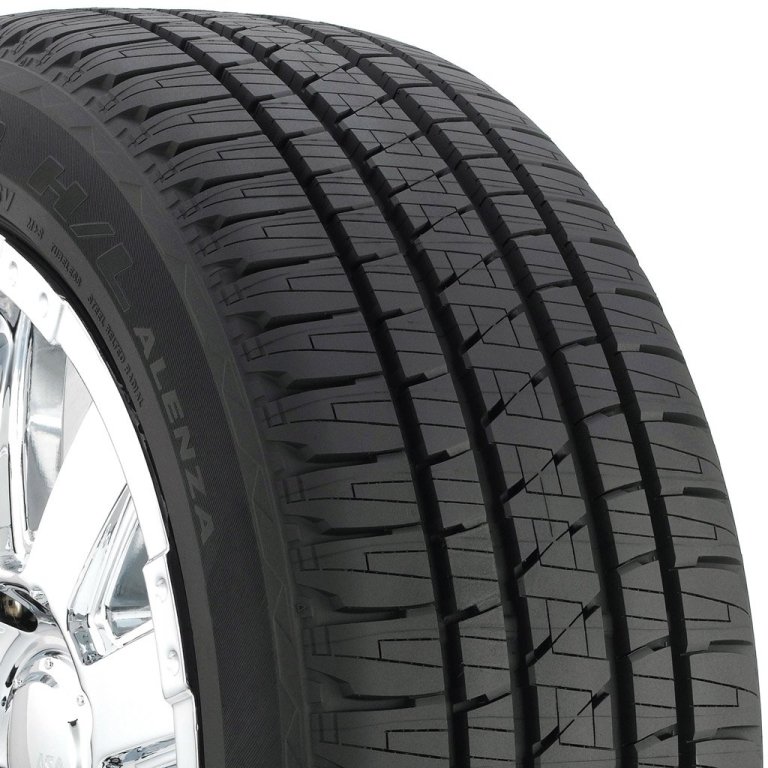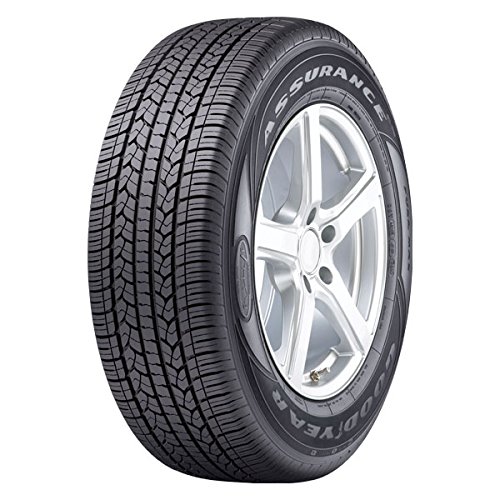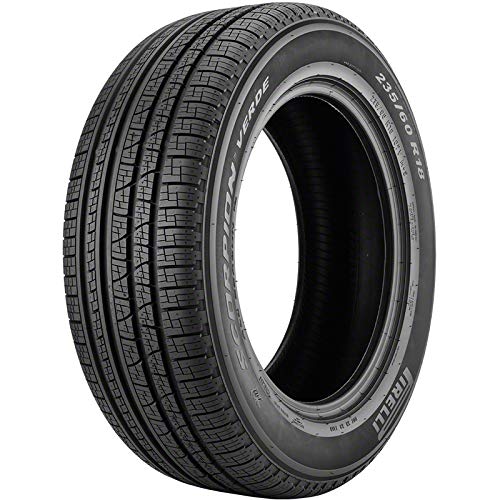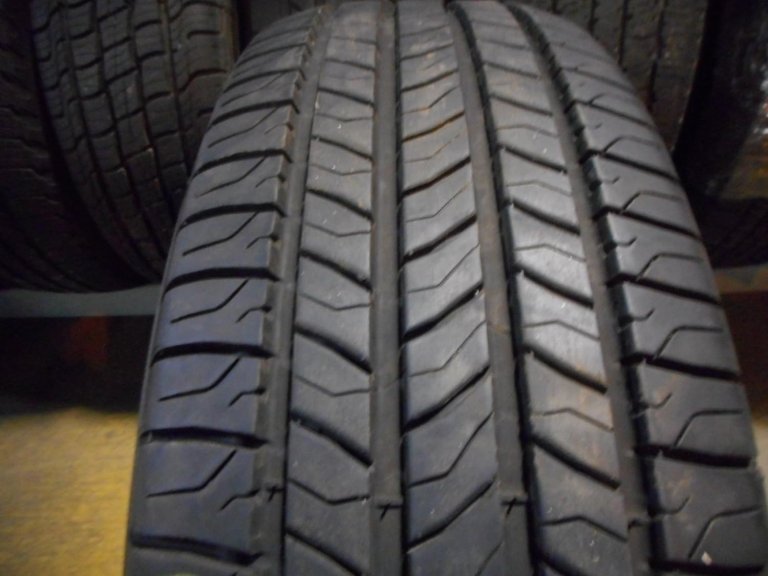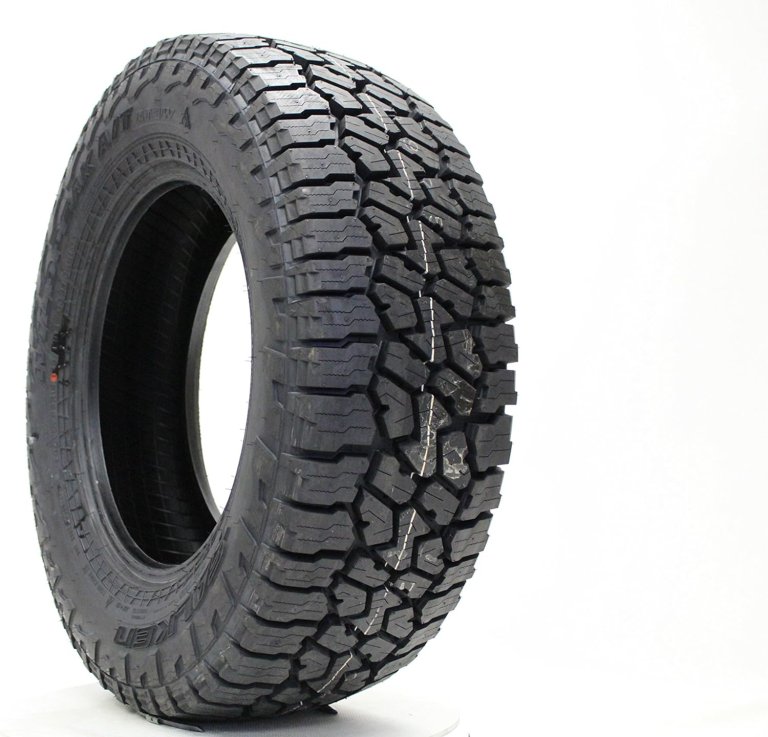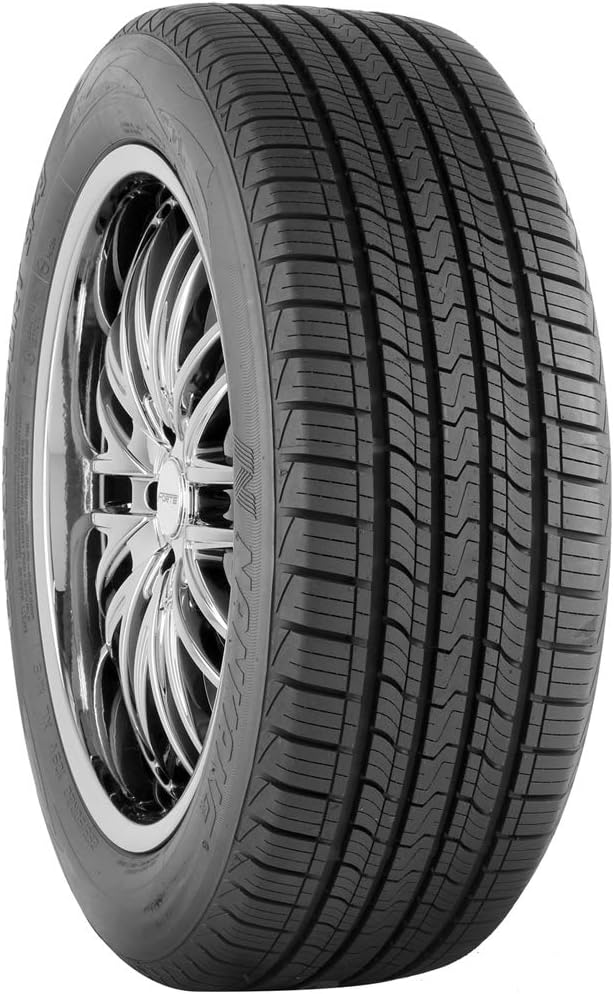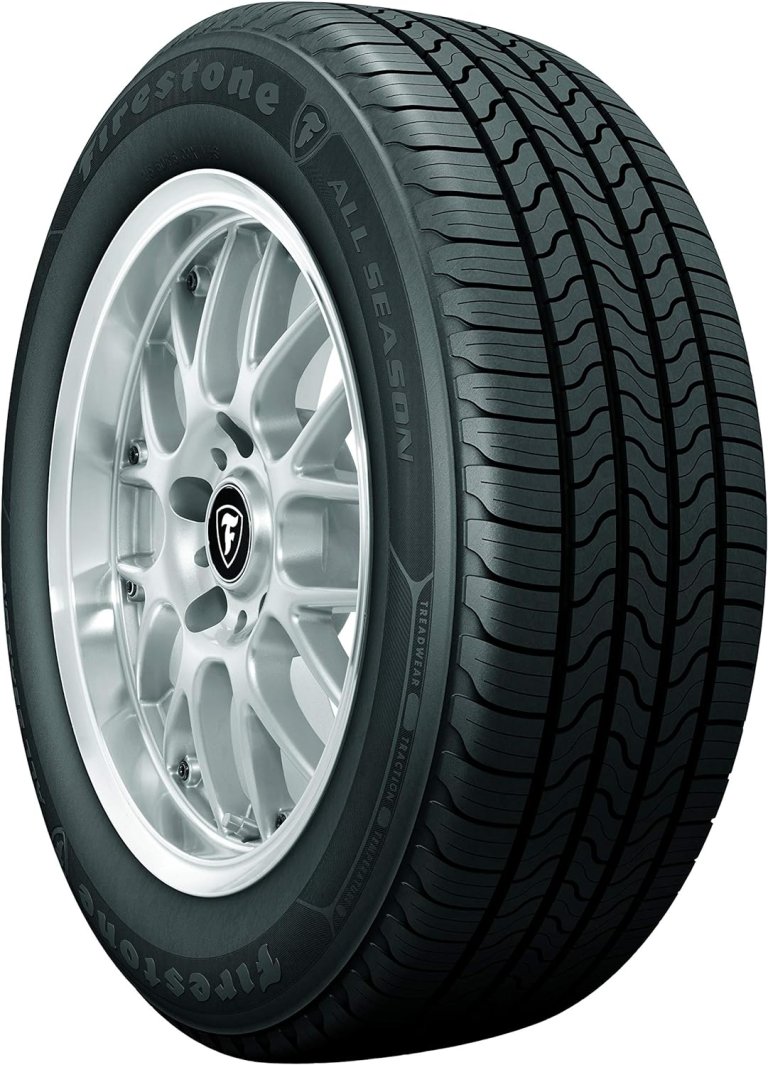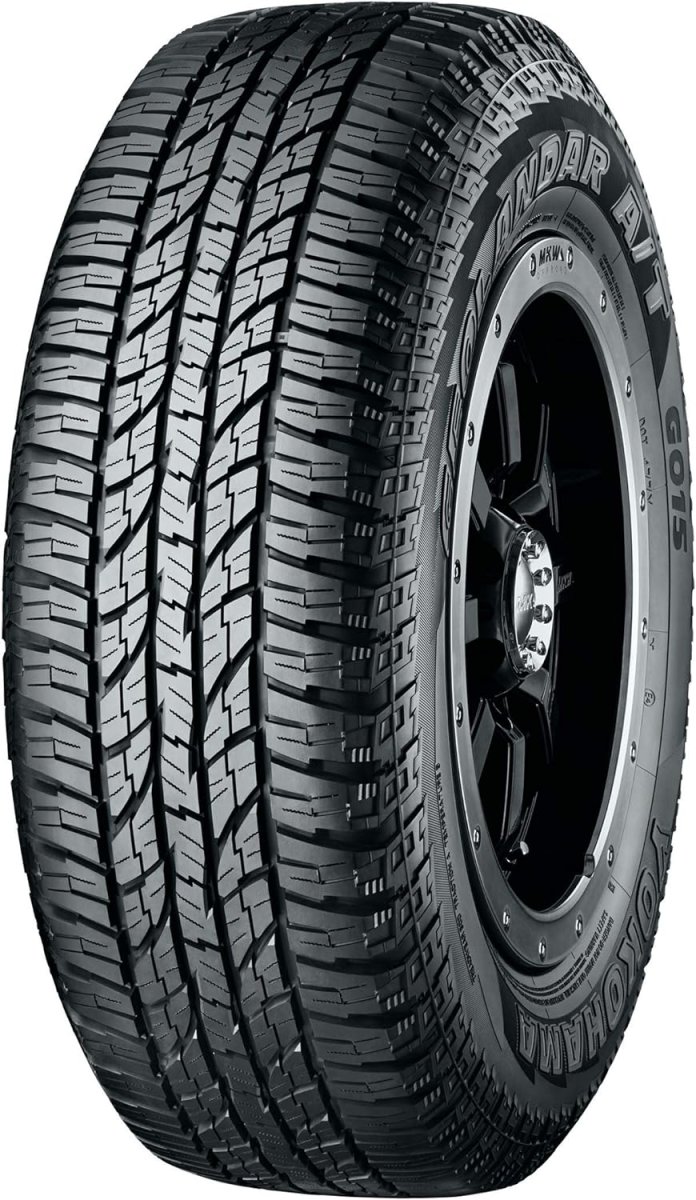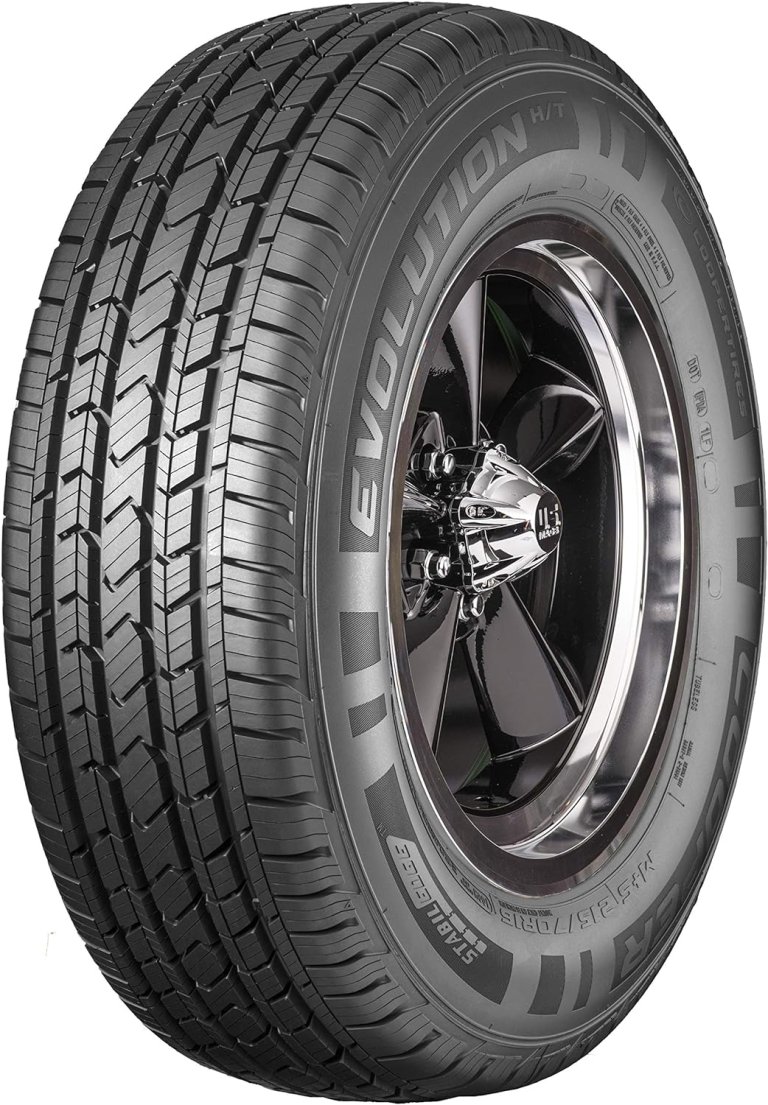We may earn revenue from the products available on this page and participate in affiliate programs. Learn more ›

Tires are one of the most important and overlooked aspects of any car or truck. Having the right set of tires can be the difference between getting there and getting stuck, so it’s massively important to choose the right set for your SUV. There are dozens of options, all of them with different pros, cons, and different levels of performance. We’re here to help you choose.
Best SUV Tires Summary List
- Best Overall: Bridgestone Dueler Alenza H/L Plus
- Best Value: Goodyear Assurance CS Fuel Max
- Honorable Mention: Pirelli Scorpion Verde All-Season Plus
- Honorable Mention: Michelin Energy Saver A/S
- Honorable Mention: Falken Wildpeak A/T3W
- Honorable Mention: Nankang SP-9 Cross Sport All Season
- Honorable Mention: Firestone All Season
- Honorable Mention: Yokohama Geolander AT G015
- Honorable Mention: Cooper Evolution H/T All-Season
Our Methodology
Tires are one of the most crucial parts of any car on the road. Choosing the right set can mean the difference between getting there safely and being stranded. Between our team at The Drive and myself testing all kinds of tires throughout the years and plenty of research, we’re able to produce a buying guide that can serve you well.
For more on how we select products, check this out.
Best Tires for SUVs Reviews & Recommendations
Best Overall
Bridgestone Dueler H/L Alenza Plus
Check Latest PriceBest Value
Goodyear Assurance CS Fuel Max
Check Latest PriceHonorable Mention
Pirelli Scorpion Verde All-Season Plus
Check Latest PriceHonorable Mention
Michelin Energy Saver A/S All-Season Radial Tire
Check Latest PriceHonorable Mention
Falken Wildpeak All Terrain Radial Tire
Check Latest PriceHonorable Mention
Nankang Cross Sport All Season Radial Tire
Check Latest PriceHonorable Mention
Firestone All Season Touring Tire
Check Latest PriceHonorable Mention
Yokohama Geolandar A/T All Terrain Radial Tire
Check Latest PriceHonorable Mention
Cooper Evolution H/T All Season Tire
Check Latest PriceOur Verdict on the Best Tires for SUVs
For this round, the Bridgestone Dueler H/L Alenza Plus is the clear winner with excellent wear life, a great treadwear warranty, and all-season versatility. For best value, the Goodyear Assurance CS Fuel Max offers a lot for less money than other competitors, including a neat fuel-saving tread compound. And for our best honorable mention, the Pirelli Scorpion Verde All-Season Plus is an excellent choice that is on the slightly more expensive side, but performs incredibly well.
What To Consider When Buying SUV Tires
All-Season Tires
All-season tires are designed to offer a smooth and comfortable ride, especially at high speeds. The tires maintain commendable traction in wet conditions and often exhibit uniform wear across the tread pattern. They can handle a little snow and slush on the road but are almost useless in deep snow.
Snow/Winter Tires
Snow tires are designed for deep snow and icy roads. The treads have large gaps to pack snow for easy movement. These tires come with a Three-Peak Mountain SnowFlake symbol and are typically used when the temperatures drop below 45-degrees Fahrenheit. However, they have poor performance on dry roads and need to be removed once the winter season is over.
All-Terrain Tires
All-terrain tires can be ridden off-road and on highways. They offer a seamless ride and can effortlessly transition from the highway to muddy grass and back without losing their traction, braking power, or performance. However, you have to sacrifice gas and tread mileage with most of these tires.
Mileage
The mileage or the life of the tire majorly depends on the brand and the technology that goes into constructing the tire. Some manufacturers maintain high standards with their tires and may have a tire with a 100,000-mile tread life, while others in the same category may have a life of only 50,000 miles. The type or purpose of the tire is also a contributing factor to the tire mileage. For instance, on-road tires last longer than off-road tires.
FAQs
A: If you don’t need to replace the complete set, at least ensure that the new tires are installed on the back axle. It helps the vehicle maintain control on wet roads and slippery surfaces. Moreover, it’s best to maintain traction in the rear wheels because the vehicle may spin off the road if you hit the emergency brake.
A: No. You have to buy new tires if your old tires have sidewall damage or if there’s a cut or tear in the pre-existing repair. Also, it’s not possible to replace worn-out treads or tread indicators and punctures larger than 0.25 inches.
A: It depends on how well the repair is done. Tire repairs should be in line with the procedures set by the Rubber Manufacturers Association (RMA). If not, you may end up with a burst tire, which could be catastrophic. Also, you should only use a repaired tire for a month at most and avoid high-speed or off-road driving.



